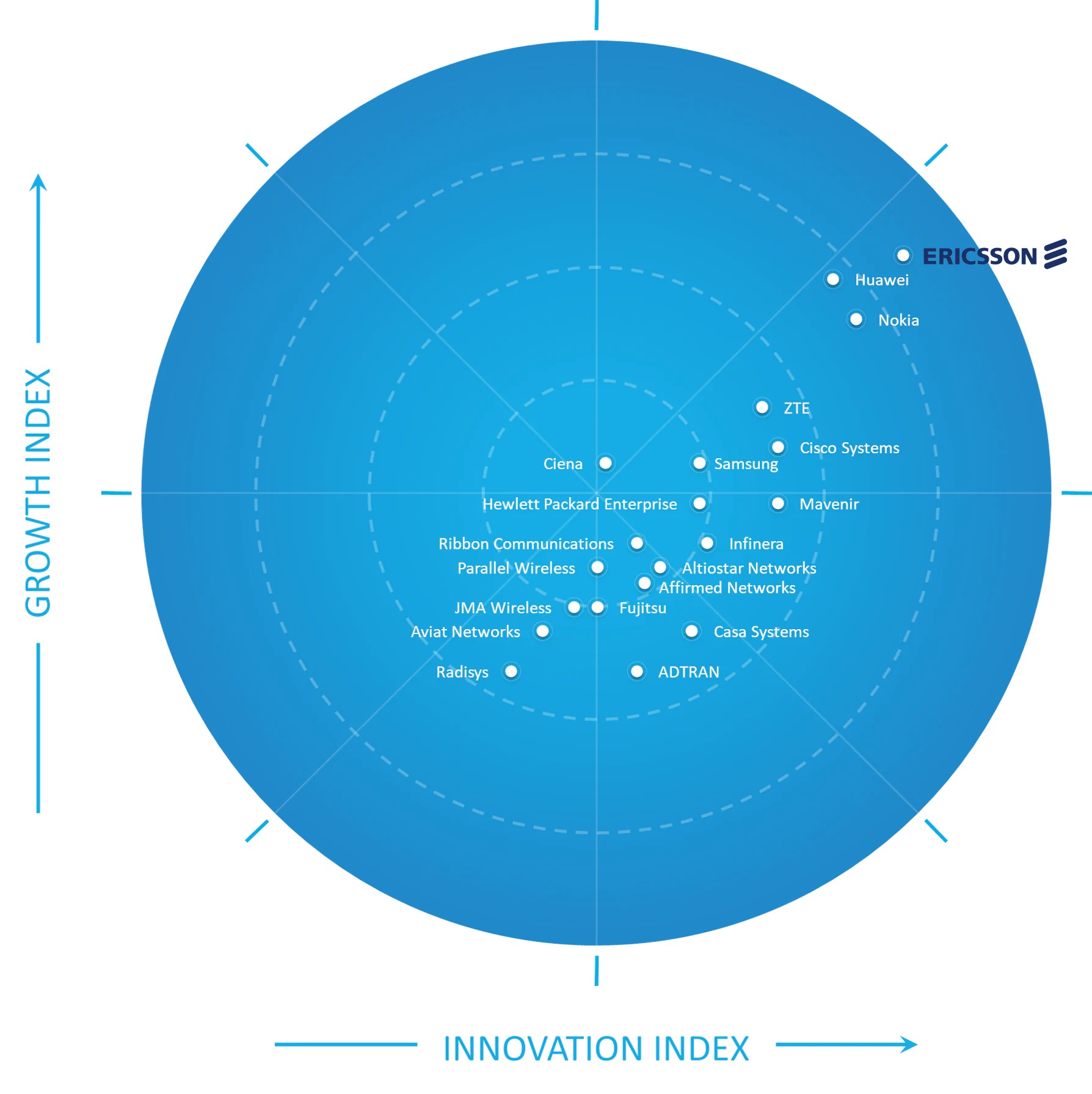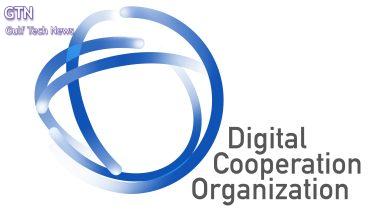Ericsson positioned as the leader in Frost Radar™: Global 5G Network Infrastructure Market, 2020

Ericsson ranks highest in the 5G network infrastructure market on the latest Frost Radar™, leveraging its current leadership in 4G network infrastructure market. According to Frost & Sullivan, the 5G network infrastructure market includes radio access networks (RAN), transport networks and core networks, which may include one or more edge networks.
In its latest report, Frost & Sullivan independently plotted the top 20 companies from a field of more than 100 global industry participants. These companies either lead the market overall, lead a market segment, or were thought leaders in certain segments. The Frost Radar™ reveals the market position of companies in a particular industry using their Growth and Innovation scores as highlighted in the Frost Radar™ methodology.
Jan Karlsson, Senior Vice President and Head of Digital Services, Ericsson, says: “Recognition as the leader in Frost & Sullivan’s Frost Radar™ on Global 5G Network Infrastructure highlights anew Ericsson’s technology leadership, market competitiveness, innovation and most importantly, our commitment to our customers. We continue to invest heavily in 5G to ensure that we have the best portfolio of network infrastructure and skilled professionals to meet our customer’s needs.”
Growth and Innovation indices
The Frost Radar™ measures growth rates and absolute revenue and then combines them with several other factors to measure a company’ performance along the Growth axis. The Frost Radar™ also measures innovation for each company by assessing its product portfolio, examining how scalable its innovations are and looking at the efficacy of its R&D strategy, as well as other factors.
The Radar’s Growth Index (GI) is a measure of a company’s growth performance and track record along with its ability to develop and execute a fully aligned growth strategy and vision by looking at its growth pipeline system as well as its effective market, competitor, and end-user focused sales and marketing strategies.
Commenting about Ericsson and the Growth Index, Troy Morley, Senior Industry Analyst, Frost & Sullivan’s Information & Communication Technology group, says: “As a leader in the 4G infrastructure market, Ericsson enters the 5G market with a large customer base. The company has done an excellent job keeping its current customers and adding new customers: it reports 118 commercial 5G agreements and 68 publicly announced 5G contracts*. Ericsson maintains a significant pipeline of customers that have yet to move to 5G but will over the coming years. Ericsson has spent the last few years adjusting its overall strategy to focus on profitability. The company recently indicated that the turnaround has been successful, and the company has significantly improved profitability and its financial position.”
The Radar’s Innovation Index is a measure of a company’s ability to develop products / services / solutions (with a clear understanding of disruptive Mega Trends) that are globally applicable, are able to evolve and expand to serve multiple markets and are aligned to customers’ changing needs.
With regard to Ericsson and the Innovation Index, Morley says: “Ericsson has proven its ability to scale its innovations globally with 2G, 3G, 4G, and now 5G. For 5G, the company currently reports 72 live 5G networks in 37 countries* (the highest level Frost & Sullivan has seen publicly reported). The company invests significant amounts in R&D; this is essential in a market where technology is always evolving. Ericsson’s product portfolio includes all areas of 5G network infrastructure as well as previous generations of network infrastructure. The company will soon offer open and virtual RAN solutions in addition to its traditional RAN solutions. The CSP market is Ericsson’s primary focus; the company’s strategy continues to center on evolving CSP needs in all areas of the world.”
A leading 5G portfolio
Morley says that Ericsson continues to improve its already impressive 5G portfolio. Ericsson has evolved its end-to-end 5G offerings to include the Ericsson Radio System, 5G Core, Orchestration and 5G Transport as well as professional services. The company has introduced innovative software solutions such as Ericsson Spectrum Sharing, 5G carrier aggregation and Uplink Booster, to significantly improve coverage, user throughput and spectral efficiency.
These solutions support service providers in deploying and evolving 5G to ensure the best end-user experience. In addition, Ericsson Radio System products delivered since 2015 can support 5G New Radio (NR) capability through remote software installation.
Ericsson Digital Services offers a cloud native dual-mode 5G Core solution for smarter networks to drive smarter business, allowing communications service providers to offer a multitude of new business opportunities for mobile users and industries. Ericsson network automation solutions will improve network efficiency, performance, customer experience and enable new revenue streams for new 5G use cases.
Ericsson’s dual-mode 5G Core solution combines an Evolved Packet Core and 5G Core network functions into a common cloud-native platform that supports 5G NR Standalone and Non-standalone, plus 4G, 3G and 2G.
Announced in February, Ericsson was also named a Leader in the 2021 Magic Quadrant for 5G Network Infrastructure for Communications Service Providers by independent IT research and advisory company, Gartner.
Download the full report: Frost Radar™: Global 5G Network Infrastructure Market, 2020*These figures were reported at the time of the Radar’s production and publication, the latest figures are available by visiting Ericsson’s 5G Contracts page




